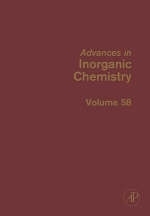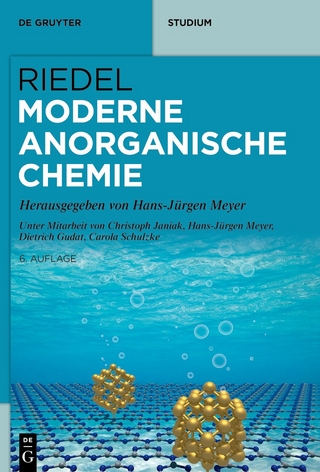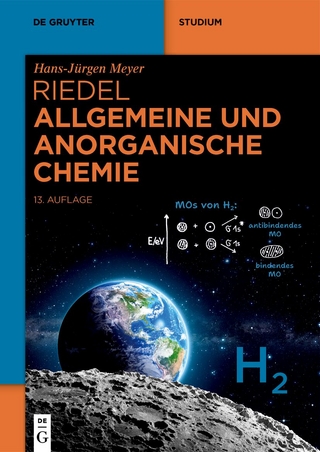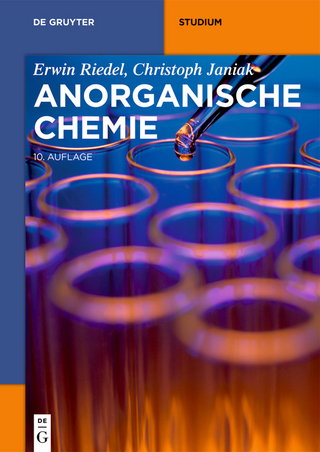
Advances in Inorganic Chemistry
Academic Press Inc (Verlag)
978-0-12-023658-9 (ISBN)
Advances in Inorganic Chemistry Volume 58 focuses on homogeneous biomimetic oxidation catalysis. Contributions by leading experts in the field cover important advances in inorganic and bioinorganic chemistry. Contributions include diversity-based approaches to selective biomimetic oxidation catalysis; the selective conversion of hydrocarbons with H2O2 using biomimetic non-heme iron and manganese oxidation catalysis; DNA oxidation by copper and manganese complexes; influences of the ligand in copper-dioxygen complex-formation and substrate oxidations; biomimetic oxidations by dinuclear and trinuclear copper complexes. In the final contribution the authors focus on green oxidation of alcohols using biomimetic copper complexes and enzymes as catalysts. Volume 58 provides another welcomed addition to the widely acclaimed series, Advances in Inorganic Chemistry.
Rudi van Eldik was born in Amsterdam (The Netherlands) in 1945 and grew up in Johannesburg (South Africa). He received his chemistry education and DSc degree at the former Potchefstroom University (SA), followed by post-doctoral work at the State University of New York at Buffalo (USA) and the University of Frankfurt (Germany). After completing his Habilitation in Physical Chemistry at the University of Frankfurt in 1982, he was appointed as Professor of Inorganic Chemistry at the Private University of Witten/Herdecke in 1987. In 1994 he became Professor of Inorganic and Analytical Chemistry at the University of Erlangen-Nürnberg, from where he retired in 2010. At present he is Professor of Inorganic Chemistry at the Jagiellonian University in Krakow, Poland, and Visiting Professor of Inorganic Chemistry at the N. Copernicus University in Torun, Poland. His research interests cover the elucidation of inorganic and bioinorganic reaction mechanisms, with special emphasis on the application of high pressure thermodynamic and kinetic techniques. In recent years his research team also focused on the application of low-temperature rapid-scan techniques to identify and study reactive intermediates in catalytic cycles, and on mechanistic studies in ionic liquids. He is Editor of the series Advances in Inorganic Chemistry since 2003. He serves on the Editorial Boards of several chemistry journals. He is the author of over 880 research papers and review articles in international journals and supervised 80 PhD students. He has received honorary doctoral degrees from the former Potchefstroom University, SA (1997), Kragujevac University, Serbia (2006), Jagiellonian University, Krakow, Poland (2010), University of Pretoria, SA (2010), and Ivanovo State University of Chemistry and Technology, Russia (2012). He has developed a promotion activity for chemistry and related experimental sciences in the form of chemistry edutainment presentations during the period 1995-2010. In 2009 he was awarded the Federal Cross of Merit (‘Bundesverdienstkreuz’) by the Federal President of Germany, and the Inorganic Mechanisms Award by the Royal Society of Chemistry (London). His hobbies include music, hiking, jogging, cycling and motor-biking. He is the father of two and grandfather of four children. Jan Reedijk Jan Reedijk is emeritus Professor of Chemistry at Leiden University. He has authored and co-authored over 1100 research papers in molecular inorganic chemistry areas, like coordination chemistry, biomimetic chemistry, anticancer metal compounds and homogeneous catalysis. His work has been honored by a Max Planck Award, and a Royal Knighthood to the order of the Dutch Lion. He is also an elected Member of the Royal Netherland Academy of Sciences, the Academia Europaea and the Finnish Academy of Sciences. In 2023 he received a doctorate honoris cause from the Nicolaus Copernicus University in Toruń, Poland. He has been a founding editor of the European Journal of Inorganic Chemistry and served on the editorial board of a number of scientific journals. He has been the Executive Secretary of the International Conferences on Coordination Chemistry (1988-2012) and served as chair or on organizing committees of many other international conferences. He has been President of the inorganic Chemistry Division of the International Union of Pure and Applied Chemistry (IUPAC) and has been serving on several IUPAC Committees, most recently as co-chair of the management of the International Years of the Periodic Table, 2019. He has also been and is still active in a number of European COST actions in Chemistry. For the Royal Netherlands Chemical Society he acted as vice-president and president and has been an honorary member since 2003. He has also served the Netherlands Foundation of Chemical Research. During his career he spent sabbatical periods in Cambridge, Strasbourg, Louvain, Münster, Dunedin and Toruń. He has been the Director of the Leiden Institute of Chemistry from 1993-2005.
1. Diversity-based approaches to selective biomimetic oxidation catalysis.
2. Selective conversion of hydrocarbons with H2O2 using biomimetic non-heme iron and manganese oxidation catalysts.
3. DNA oxidation by copper and manganese complexes.
4. Ligand influences in copper-dioxygen complex-formation and substrate oxidations.
5. Biomimetic oxidations by dinuclear and trinuclear copper complexes.
6. Green oxidation of alcohols using biomimetic Cu complexes and Cu enzymes as catalysts.
| Reihe/Serie | Advances in Inorganic Chemistry |
|---|---|
| Verlagsort | San Diego |
| Sprache | englisch |
| Maße | 165 x 240 mm |
| Gewicht | 630 g |
| Themenwelt | Naturwissenschaften ► Chemie ► Anorganische Chemie |
| Naturwissenschaften ► Chemie ► Physikalische Chemie | |
| ISBN-10 | 0-12-023658-3 / 0120236583 |
| ISBN-13 | 978-0-12-023658-9 / 9780120236589 |
| Zustand | Neuware |
| Informationen gemäß Produktsicherheitsverordnung (GPSR) | |
| Haben Sie eine Frage zum Produkt? |
aus dem Bereich


